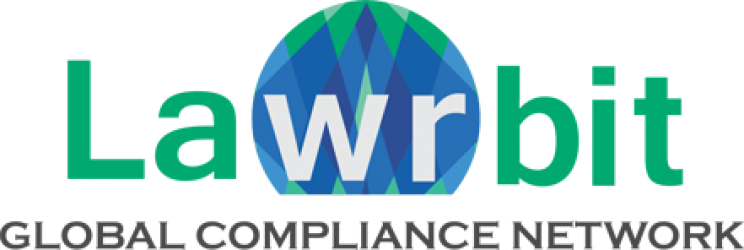INTRODUCTION
The Rising disasters in the coaching industry have led to several serious concerns, particularly, an unhealthy environment, terrible mental health issues of students, sky-high tuition fees and most importantly the alarming rate of suicides by students. The right to education is explicitly mentioned as a fundamental right in the Indian Constitution but due to the questionable practices of the coaching industry, education is now more of a luxury than a necessity. The proliferation of coaching centers has raised concerns about their quality, standards, and ethical practices.
On 16th January 2024, the Government took an evolutionary step and issued a Guidelines for Regulation of Coaching Center (hereinafter referred as “the said guidelines”).
The idea behind these guidelines is to ensure that coaching centers serve their intended purpose and contribute positively to students’ academic growth. Furthermore, it ensures that teaching materials are relevant, accurate and up to date and that instruction/teaching should be done by qualified educators. The said guidelines prioritize the maintenance of optimal student-teacher ratios to ensure personalized attention and effective supervision. Ethical conduct and professional integrity are also paramount highlights of the said guidelines.
KEY DEFINITIONS:
Coaching center includes a center, established, run, or administered by any person to provide coaching for any study programme or competitive examinations or academic support to students at school, college, and university level, for more than 50 students.
Government means central government, State/UT Government having appropriate jurisdiction.
Institution means school or any other educational institution recognized or controlled by, or affiliated to a Board, or controlled or recognized by State/UT Government, an affiliated college, and associated college, a constituted college, a university or educational institution established under the act of central government or State/UT government.
Person means an individual and includes a group of persons or a body corporate, or a trust, firm or society or an institution.
Proprietor means an owner of a coaching center seeking registration or registered and includes joint owner.
Tutor means a person who guides or trains students in any coaching center and includes tutor giving specialized tuitions.
Coaching means tuition, instructions or guidance in any branch of learning imparted to more than 50 students but does not include counselling, sports, dance, theatre and other creative activities.
REGISTRATION OF COACHING INSTITUTES:
- A person shall take a prior registration before establishing, running, managing, or maintaining a coaching center, as per the said guidelines released by the Central Government.
- Existing coaching centers shall apply for registration within the period for 3 months from the date of implementation of the said guidelines.
- If there is more than one branch of a coaching institute then they need a separate registration for each branch of such institute.
- The validity of the registration will be subject to approval by the appropriate Government.
- Two Months prior to the expiration of the certificate the concerned coaching institute must apply for renewal.
- An online portal created by the appropriate government will be made to felicitate the registration of the coaching institutes.
- The Coaching centers shall adhere to the rule wherein they need to have a website with updated details of the qualification of tutors, courses/curriculum, duration of completion, hostel facilities (if any), and the fees being charged, an easy exit policy, fee refund policy, number of students who have undertaken coaching from the center and number of students who finally succeeded in getting admission in Higher Education Institutions, etc.
- Documents to be accompanied with the application for registration. Every application for registration of a coaching center shall be accompanied by an undertaking by the proprietor stating that – the coaching institute shall use only the word ‘registered coaching center’ and shall not use the words ‘recognized’ or ‘approved’ on any sign board or on any prospectus or correspondence or communication of whatever nature or at any place.
- No coaching center shall enroll students below the age of 16 or only those who have already passed the secondary education.
- Registration Certificate may be cancelled anytime without prejudice to the penal laws that may be applicable for the violation of any law. If the concerned authority is clear that the coaching center has violated the rules or any terms and conditions laid down.
KEY HIGHLIGHTS OF THE SAID GUIDELINES:
- INFRASTRUCTURE REQUIREMENTS:
- Each student in the coaching center must have a minimum one square meter of space during classes, with appropriate infrastructure according to the number of enrolled students.
- The coaching center building must comply with fire and building safety regulations and obtain the necessary certifications from governmental authorities.
- Medical aid including a first aid kit and access to emergency services must be available with information about hospitals, doctors, and helplines displayed for student awareness.
- Every classroom within the coaching center building should be well-lit, ventilated, and fully electrified. Clean and safe drinking water must be accessible to all students and staff. CCTV cameras may be installed as needed for security purposes, and security measures should be effectively managed.
- A system for students to raise complaints must be in place, with a committee established to address student grievances.
- CURRICULUM:
- Coaching centers should be committed to completing the classes within the specified time outlined in the prospectus.
- The coaching center must issue a detailed prospectus mentioning the particulars about Fees, Faculty, Residence, Rules and Committees and facilities.
- Coaching sessions for students also studying in institutions or schools should not overlap with their institutions or school hours.
- Additional support will be available for students who require academic assistance.
- The curriculum and class timetable will be thoughtfully spaced to allow students time to relax and avoid undue pressure.
- Weekly breaks for both students and tutors should be ensured by the coaching center. No assessments or exams will be scheduled immediately following the weekly break.
- Coaching classes will be structured to avoid excessive duration, not exceeding 5 hours per day, with consideration given to appropriate timing. In addition to core subjects, coaching centers will offer curriculum activities to promote holistic development and cognitive abilities.
- CODE OF CONDUCT BY THE COACHING CENTER:
- The prospectus and website should clearly outline the predetermined number of students per class or batch.
- Admission should maintain a balanced teacher-student ratio, fostering strong connections between students, tutors, and counselors, ensuring easy access to learning materials.
- The coaching center must not enroll students under 16 years old or until after they have completed secondary school examinations.
- Students must be informed about exam difficulty, syllabus, preparation intensity, and required effort before enrolling. Students should understand the educational environment, cultural context, and distinctions between school-level and competitive exams.
- Beyond engineering and medical options students should receive information on alternative career paths to alleviate future stress and broaden horizons.
- Awareness should be provided to the students and parents that admission in the institute does not guarantee success in competitive exams.
- Organize workshops and sessions on mental health awareness in collaboration with professionals. Raise awareness among students and parents about course pedagogy, timeline, and available facilities, counseling against unnecessary mental pressure and expectations.
- Assessment test results should remain confidential and used solely for internal performance analysis.
- COUNSELORS AND PSYCHOLOGISTS SUPPORT:
- Given the intense competition and academic demands faced by students, coaching centres should prioritize the mental well-being of their students by conducting classes in a manner that avoids undue pressure.
- Additionally, they should establish mechanism for immediate intervention to support students experiencing distress. It is recommended that coaching centres develop a counseling system with trained counselors who are readily accessible to students and parents, to offer effective guidance and support.
- Career counselors should be enlisted to assess students’ interests, aptitude, and capabilities guiding them and their parents towards realistic career options. Coaching centers should organize regular workshops and awareness programs for parents, students, and teachers on mental health and stress prevention, covering topics such as health, nutrition, hygiene, disaster response and substance abuse. Emphasis should also be placed on positive parenting concerning students’ mental health and self-care.
- INCLUSIVITY AND ACCESSIBILITY:
- The coaching center must refrain from any form of discrimination against applicants or students based on factors such as religion, race, caste, gender, place of birth or descent during the admission and teaching processes. Efforts should be made by the coaching center to promote increased enrollment of students from vulnerable communities, including female students, students with disabilities and those from marginalized groups.
- The coaching centers premises including the building and surroundings should be accessible to people with disabilities and complaint with the provisions outlined in the Rights of Persons with disabilities act 2016. Accessibility provisions such as braille materials, e-readers, and accessible toilets should be implemented wherever feasible.
- MAINTENANCE OF RECORDS:
The coaching center is required to keep and present records, accounts, registers, or any other documents as specified by the relevant government authority. The coaching center is permitted to submit an annual report to the competent authority. - RESTRICTION ON SHIFTING OF COACHING CENTER:
The coaching center must conduct coaching sessions exclusively at the location specified in its registration certificate and cannot relocate to any other place without obtaining prior written approval from the competent authority. - ENQUIRY OF ACTIVITIES OF THE COACHING CENTER:
The Competent Authority or any authorized officer appointed by the relevant government, will continuously monitor the operations of the coaching center and investigate its compliance with registration eligibility requirements and the quality of its activities. - DISPOSAL OF COMPLAINTS:
Students, parents, or employees of coaching centers may lodge complaints against the centers, while coaching centers may also file complaints against students or parents. These complaints will be resolved within thirty days either by the competent authority or by an inquiry committee established by the relevant government. Following a hearing based on the report from the competent authority or inquiry committee, the competent authority will impose penalties or initiate registration cancellation proceedings. - PENALTY:
The coaching center shall be liable for the following penalties in case of violation:- Rs 25,000/- for first offence
- Rs. 1,00,000/- for the second offence
- Revocation of registration for subsequent offence
CONCLUSION:
The growing toxic culture in coaching industry raised a series of crucial concerns for the Government, majorly because of the lack of regulatory guidelines. The unregulated private coaching centers in the country continues to grow in the absence of any laid down policy or regulation. Charging sky-high fees and malpractices have risen due to unregulated practices. Coaching centers play a crucial role in supplementing formal education and helping students achieve their goals. In such a situation the Regulatory guidelines are a blessing in disguise for the students. The said guidelines underscore the importance of ensuring the safety and well-being of students within coaching center premises. Additionally, coaching centers are encouraged to establish mechanisms for addressing student grievances and providing pastoral care to promote a positive learning environment conducive to academic success and personal development. Henceforth, Coaching centers must prioritize academic integrity.
Disclaimer
The information provided in this article is intended for general informational purposes only and should not be construed as legal advice. The content of this article is not intended to create and receipt of it does not constitute any relationship. Readers should not act upon this information without seeking professional legal counsel.


